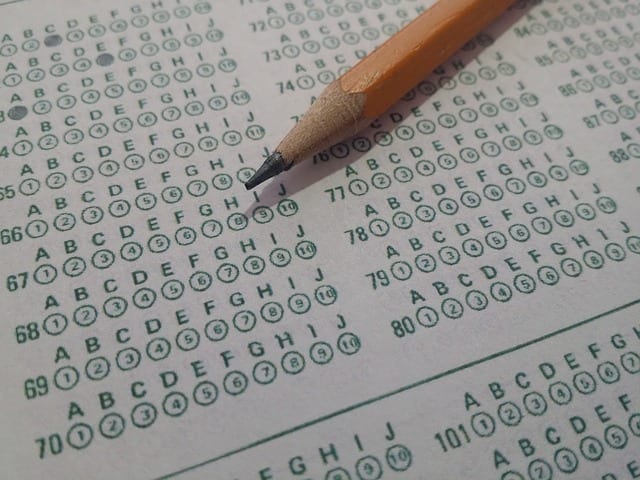The College Board moved most of its Advanced Placement tests online to comply with shelter-in-place orders. But some test-takers say the company didn’t address serious problems with its online exams.
Students have filed a class action against the College Board, claiming problems with the company’s Advancement Placement exams made it impossible for some test-takers to submit answers within a reasonable timeframe.
The lawsuit asserts that College Board knew its at-home, online-only exams may have been problematic—especially for students who are disabled or lack access to high-speed internet facilities. But instead of seeking to address such potential shortcomings, the College Board allowed students to take the tests anyway.
“The College Board was immediately made aware by numerous sources, including counselors, educators, advocates and families, that there were serious concerns that the at-home AP exams would not be fair to students who have no computer, access to Internet, or quiet workspaces from which to work, or to under-resourced students in general.”
“Even as the test began, questions remained about the availability and applicability of legally required accommodations for students with disabilities, the fair access to connectivity for all students, test security, and score comparability,” the lawsuit says.

But Peter Schwartz, College Board’s chief risk officer and general counsel, said the class action lacks merit—a complaint attempting to weaponize media coverage against an otherwise responsible non-profit company.
“This lawsuit is a PR stunt masquerading as a legal complaint being manufactured by an opportunistic organization that prioritizes media coverage for itself,” Schwartz told the Tampa Bay Times in an e-mail. “It is wrong factually and baseless legally; the College Board will vigorously and confidently defend against it, and expect to prevail.”
Schwartz further told the Times that students who were not able to submit all of their answers on the first day of testing were given an opportunity to take the same exams again.
But the College Board’s concession, as explained by the Tampa Bay Times, appears only to have been made after numerous test-takers and family members complained about the Advanced Placement exams’ formatting and pace. Furthermore, test-takers who had experienced problems before the College Board began offering re-dos cannot avail the offer.
Some teenagers, like 17-year old Ben Rosenberg, said he began experiencing technical difficulties on the second question of his A.P. Physics exam.
“I hit the submit button and nothing happened,” Rosenberg said. “I kept pressing it and pressing it. Nothing happened and the time ran out.”
Rosenberg told the Times he was immediately anxious—and knew that he or his family would have to pay to take the test a second time.
“In that instant, all of my confidence gave way to fear,” he said. “What am I going to do now?”
“I asked for a makeup,” Rosenberg said.
The lawsuit is supported, in part, by FairTest, an advocacy organization which has claimed standardized college placement exams—like the ACT and SAT—are inherently biased against minorities. FairTest has filed numerous lawsuits against the use of standardized tests in college admissions.
Sources
The College Board Is Sued Over AP Test Glitches
College Tests Called Unfair to Homebound, Tech-Poor Students (1)
Unable to submit AP test answers, students file class-action lawsuit


Join the conversation!